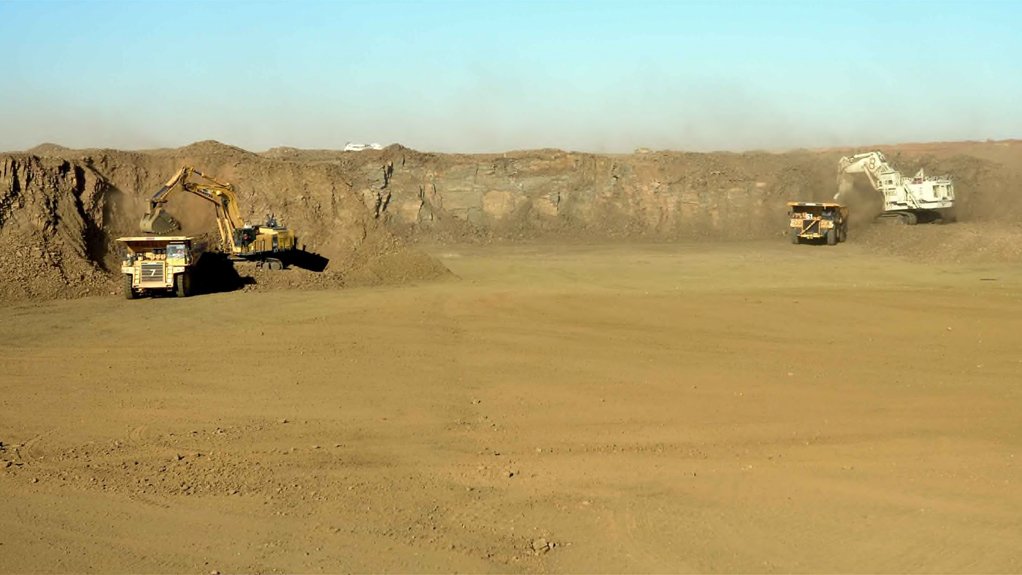TORONTO (miningweekly.com) – Two nongovernmental organisations (NGOs) have filed a report with the Royal Canadian Mounted Police (RCMP) calling for an investigation into mining company Kinross Gold Corporation for alleged breaches of Canada’s anticorruption laws at the company’s Tasiast mine, in Mauritania, and its Chirano mine, in Ghana.
Activist MiningWatch Canada and French anticorruption association Sherpa claimed on Thursday that they were in possession of extensive and detailed documents and information received from whistleblowers and other sources, which included subpoenas served on Kinross as part of an ongoing US Securities Exchange Commission (SEC) investigation, internal Kinross documents, and whistleblower letters, setting out highly detailed allegations of bribery, corruption and other financial crimes in Mauritania and Ghana.
“This information suggests extremely close ties between Kinross and public officials, which have apparently allowed opaque financial flows of great magnitude to improper recipients,” the NGOs stated.
“We urge the RCMP to conduct a thorough and aggressive investigation of Kinross’s African operations, based on this information – which is as solid as it is astonishing – to determine whether Canadian anticorruption laws have been breached, as appears to have been the case,” MiningWatch’s Jamie Kneen charged.
“There is no news here,” a Kinross spokesperson told Mining Weekly Online in response to questions about the allegations.
Kinross, in October, confirmed that it was under investigation by the SEC and the US Department of Justice (DOJ) regarding allegations of improper payments made to government officials and certain internal control deficiencies at its West Africa mining operations.
The investigations were first reported several months ago by the Globe and Mail and the Wall Street Journal.
According to Kinross, the allegations first arose in August 2013, after which the company immediately took action according to its whistleblower policy.
In March and December 2014, and July 2015, Kinross received subpoenas from the SEC seeking information and documents on substantially the same subjects as had previously been raised. In December 2014, Kinross also received similar requests for information from the DOJ.
In its October statement, Kinross said it was cooperating with the SEC and DOJ and that it continued to diligently pursue its own internal investigation, which, over the course of the past 25 months, had not identified issues that Kinross believed would have a material adverse effect on the company's financial position or business operations.
“Our internal investigation is ongoing, and additional issues or facts could become known as the investigation continues,” it said at the time.
The NGOs, meanwhile, held that both Mauritania and Ghana had long struggled with serious problems with corruption.
The activists also criticised Canada for poor enforcement of its anticorruption legislation, reportedly allowing Canadian mining companies to engage in and profit from “obvious corruption”.
In its 2015 progress report on the Organisation for Economic Cooperation and Development’s Convention on Combatting Foreign Bribery entitled ‘Exporting Corruption’, Transparency International had noted that Canada’s current "moderate enforcement" was “insufficient deterrence” to prevent Canadian companies from engaging in corrupt practices.
Advisory firm EY’s 2014 Global Fraud Survey had found that one in five Canadian executives believed that bribery and corrupt practices took place widely in the country.
The first sentencing of an offender under Canada’s Corruption of Foreign Public Officials Act took place in 2014, marking a step-change in RCMP investigations into alleged bribery by Canadian firms operating on foreign soil.
Edited by: Chanel de Bruyn
Creamer Media Senior Deputy Editor Online
EMAIL THIS ARTICLE SAVE THIS ARTICLE
To subscribe email subscriptions@creamermedia.co.za or click here
To advertise email advertising@creamermedia.co.za or click here













